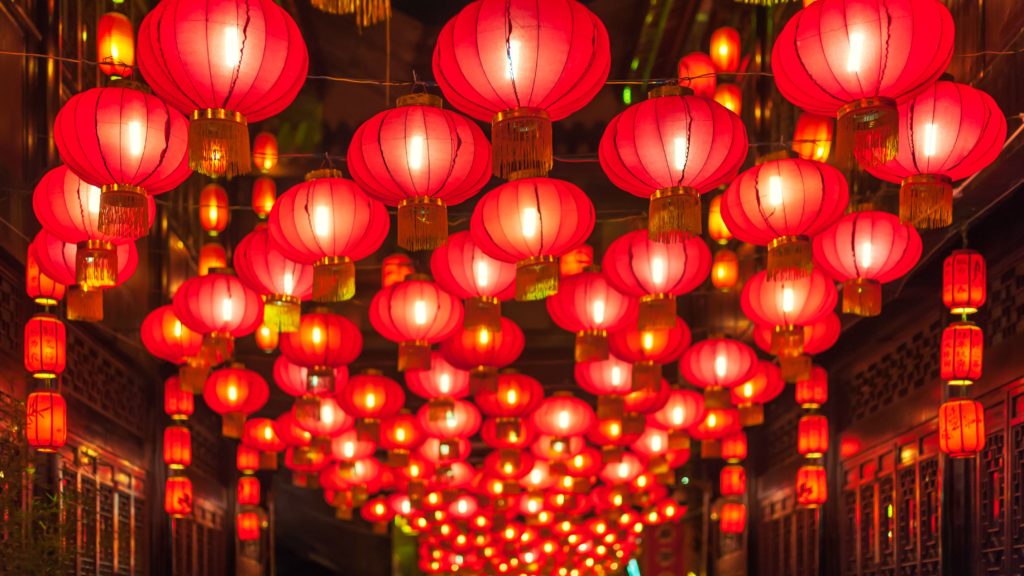Breanna Huynh
Feature Editor
What Asian Americans are doing for Lunar New Year.

If you didn’t like how you started off the new year, don’t worry, you have a second shot on February 2nd with Lunar New Year. Lunar New Year, commonly associated with Chinese New Year, is one of the biggest celebrations in East and Southeast Asia with a few countries like Taiwan, China, Vietnam, Singapore, Thailand, and South Korea celebrating it.
One of the main aspects of Lunar New Year is flying home to family and friends, dressing up, receiving money, and embracing your culture. With the pandemic last year preventing many Asian Americans from participating in their usual activities, many are excited this year to be able to see their family and friends.
Amelia Chang, a junior, excitedly describes that this year her and her family are going to celebrate with friends and continue their long-standing tradition of making dumplings with their grandparents.
One of Chang’s friends is Yu Xin Cheng, a senior at Mission Viejo High School where their family will also host a big gathering the day before Lunar New Year with their family friends, dress up, and make longevity noodles together.
Cheng recalls this as one of her favorite parts of Chinese New Year because “we all gather in a big group, mixing longevity noodles with various ingredients and wishing each other blessings for the new year.”
Wishing people good luck is another central part of New Year in various cultures, such as Tet, the Vietnamese New Year (also held on the same day as Chinese New Year). Children will dress up in their áo dài, a traditional Vietnamese dress, and wish their elders good health or wealth to receive red envelopes filled with money.
Chan Trinh, a senior at Mission excitedly recalls the feeling of receiving her red envelopes because “there’s nothing like wearing an áo dài, singing karaoke, and counting the money I receive.”
She adds on that “Even though I only celebrate with my two cousins, I’m happy that I can go to the street festivities in Little Saigon this year and see other people dress up.”
Trinh’s situation is different from other Asian Americans who have family overseas such as Annabelle Park, a senior at OSCA (Orange County School of the Arts), whose extended family resides in South Korea.
“This year, my family will be making tteokguk (rice cake soup) with namul (seasoned vegetables), galbi-jjim (braised short ribs), jeon (cod pancake), and homemade dumplings. Then, we’ll drive to Koreatown in Los Angeles to eat and explore,” relays Park.
Like Park, Kaylie Tiaokhiao, a sophomore at Mission, will spend the new year eating lots of Thai or Chinese food and will “gather at one of our relatives’ houses…with a lot of decorations and red envelopes” as opposed to spending the new year at home and facetiming relatives last year.
Decorations are another important aspect of Lunar New Year as many houses are decorated in red with the animal of the year. Every year, the animal changes based on the Chinese zodiacs and the year it correlates to and is supposedly used to determine your fortune for the year.
So anyone born in the years 2022, 2010, 1998, 1986, 1974… can celebrate as this year, it is the year of the tiger. The tiger, according to the Chinese horoscope symbolizes strength and braveness but while this is their “birth-sign year” it is expected that they will face challenges and obstacles so wearing red symbolizes good luck.
Although a lot of countries in Asia use the lunar calendar, many individuals do not use it for their daily lives, choosing instead to use the Gregorian calendar (the calendar we use in the United States). The Chinese calendar on the other hand is mainly used for marking down birthdays or keeping track of special events, like Lunar New Year.
That’s why Lunar New Year is a special holiday for many Asian Americans who rejoice in a day where they can be proud of their heritage. Trinh states that, “It’s a chance to reconnect with family and my cousins and I always learn how to make something new each year so we bond and further learn more about our culture.”
Additionally, for Cheng whose parents left their family back in Singapore, the new year “allows me to embrace my culture and be proud of it. Since I’m a second generation immigrant in America, I don’t have that same connection to my extended family or culture back in Asia, so I think it’s an important holiday for me to connect back to my roots.”
